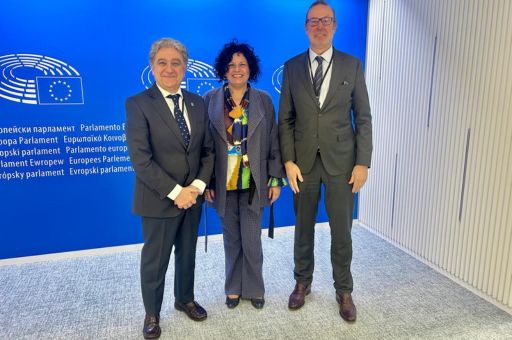The Director General Francisca Ramis has broken down the main lines so that tourism can continue to be an engine for growth, well-being, respect for the environment and social cohesion.
The Government of the Balearic Islands has presented in Brussels the main lines of the opinion on the future strategy for sustainable and resilient tourism for all regions and cities of the European Union, which will be led by the Balearic Islands, after the European Committee of the Regions (CoR) approved in early March the appointment of President Margalida Prohens as rapporteur for the drafting of this own-initiative opinion.
The Director General of Institutional Relations and Relations with the Parliament, Francisca Ramis, took part in the NECSTouR forum, where she explained the main axes of the strategy that the Government will lead so that tourism continues to be an engine of growth, but also of well-being, respect for the environment and social cohesion.
TDB keeps you informed. Follow us on: Facebook, Twitter and Instagram
The Government presents the basic lines of the opinion on the sustainable tourism strategy for the EU in Brussels
Ramis has identified five key areas within the future sustainable tourism strategy, such as improving coexistence between residents and visitors, avoiding overloading essential services and infrastructures; preserving the authenticity and quality of the tourist experience, encouraging diversification through the management of flows; protecting natural resources, regulating access to natural areas and promoting sustainable accommodation and the use of technologies to optimise resources; guaranteeing efficient and resilient infrastructures with strategic investments to face the future; and fostering innovation; protecting natural resources, regulating access to natural areas and promoting sustainable accommodation and the use of technologies to optimise resources; guaranteeing efficient and resilient infrastructures with strategic investments to face the future; and fostering innovation and citizen participation, involving all stakeholders in this transformation process.
In order to achieve these objectives, the representative of the Government explained that four specific lines of action will be proposed: the implementation of strategies for depersonalisation, the intelligent regulation of tourist accommodation, the finalist nature in the application of tourist taxes and inter-regional collaboration and sustainable financing to implement innovative projects.
In his presentation, Ramis stressed that this opinion ‘will serve as a basis for the future European sustainable tourism strategy to be approved by the European Commission, and reinforces the need for a European framework to ensure that these practices spread and become the norm’ because ‘we cannot be satisfied with managing the present; we have to build the future. And this future has to be sustainable, innovative and resilient.
